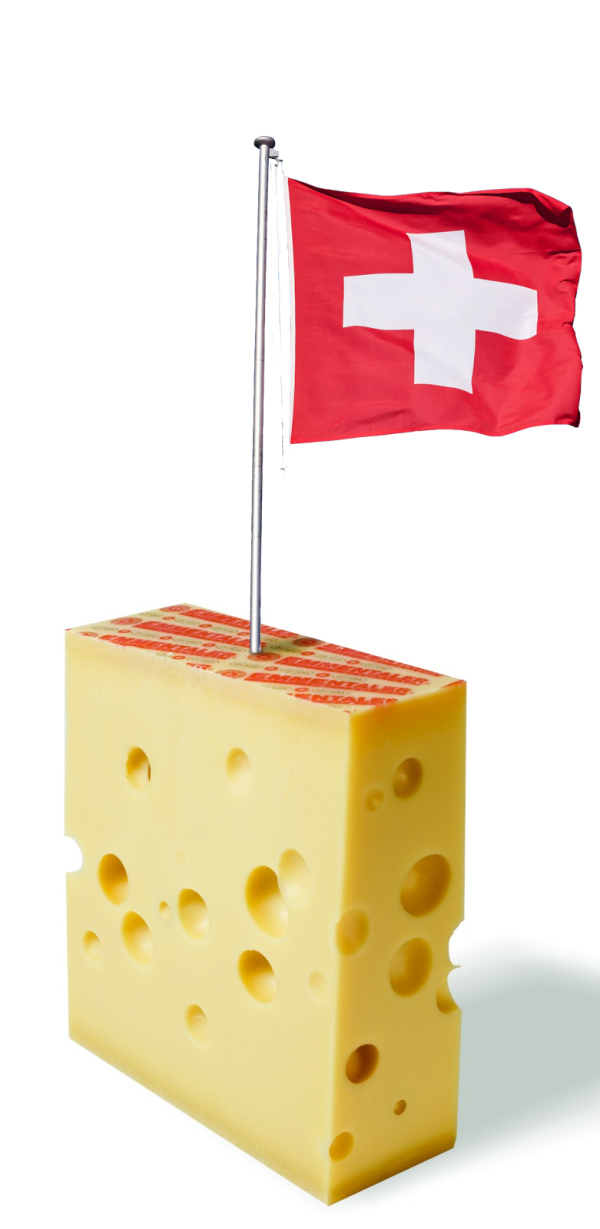What do taewa Māori (Māori potatoes) and Swiss cheese have in common? For NIWA social scientist Stephen FitzHerbert it’s much more than a tasty snack.
Having previously studied the economies of taewa Māori, next month Dr FitzHerbert leaves for Zurich on a year-long post-doctorate study to investigate what makes Swiss cheese Swiss.
He is the recipient of a Swiss Excellence Award for international scholars and will be based with the economic geography team at the University of Zurich.
“I’ve always been interested in the relationships between food and place, the stories it tells about land, people and cultural economic values. Food has so many stories to tell,” he says.
Protecting Swissness
Last year Switzerland introduced new “Swissness” legislation aimed at protecting and strengthening the reputation of exported Swiss products and the Swiss flag the products carry. According to government reports, before the legislation was introduced the rules regulating the Swiss brand were often ignored and enforcement was difficult.
Dr FitzHerbert will be working with cheese producers and following cheese to reveal the things required to make it ”Swiss”.
“It’s something of a value chain approach, in which I follow the cheese; I’ll start with farms, move through to cheese producers and then to the places cheese is sold, understanding all the different journeys and negotiations that something has to go through to become a Swiss cheese.”
He will concentrate on well-known export varieties such as Gruyere, Emmentaler and Appenzeller, visiting small artisan producers as well as large commercial enterprises.
Understanding how Swiss cheese becomes Swiss means grappling with an inherent set of complications. While there is ample Swiss milk for cheese production, the feed for the cows that produce the milk used is often imported, some of the bacteria used in the production process is imported, New Zealand rennet is sometimes used and many people that tend animals in Switzerland are immigrants.
“The critical issue is where you draw the line. To me that’s really interesting,” says Dr FitzHerbert. “The idea of protecting a national brand is great in theory, but it can create challenges, especially for smaller-scale producers. I want to find out how small or mid-size producers can actually negotiate the challenges of becoming certified and/or create alternative economic possibilities.”
Producers protecting cultural and environmental values
As a policy, Dr FitzHerbert says Swissness is designed to protect cultural practices, enhance environmental values and add economic value which adds up to a complex set of aspirations. However, what’s not been investigated are the consequences this legislation has for producers (i.e. complicating existing food production practices, the right to be defined Swiss, and the ability to participate).
“From my initial conversations with Swiss producers, cheesemaking is not just economic, it’s also about upholding and enriching cultural and environmental values of places. Being able to tell their own story is inherently important”.
One aim of his work is to bring back some of what he learns to support Māori enterprises who are experimenting with agricultural value-adding initiatives (such as collective Māori brands), which serve both cultural and economic aspirations. It will also provide insights for New Zealand into how we think about our own food production values.
“Implementing a brand based upon geographical and production rules has its unique set of opportunities and challenges. The story of how producers work with Swissness promises to shed light on the possibilities of place-based brands and finding the balance between enhancing people’s ability to differentiate themselves from each other but still come under a collective identity. Likewise, the stories of how other producers do not work with Swissness is valuable for understanding alternatives”.
Dr FitzHerbert is one of the members of NIWA’s recently formed Social Sciences and Economics Group.

